Remembering the 100th Anniversary of the Revolution of 1917 with a Call to Repentance
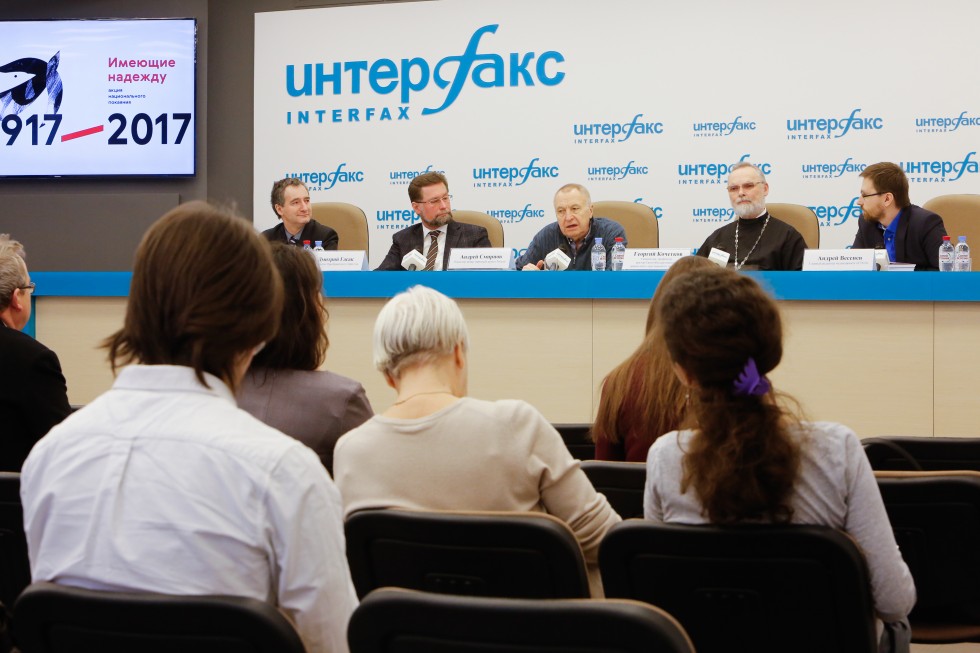
“We haven’t yet made sense of the 74-year rule of the Bolsheviks. There are individuals who have made statements, written articles or books – but none of this has really affected the consciousness of the nation as a whole. It is as if we are carrying around a cancerous tumour inside us, which started to grow in 1917,” said Andrey Smirnov, adding that the Bolshevik regime began “with universal terror, a fact that is not yet recognized by our nation.”
The film director believes that “we are all – independent of our desires – creations of that regime,” and “the most important first step we can take within this repentance initiative is to expose the cancer and begin to call things by their true names.”
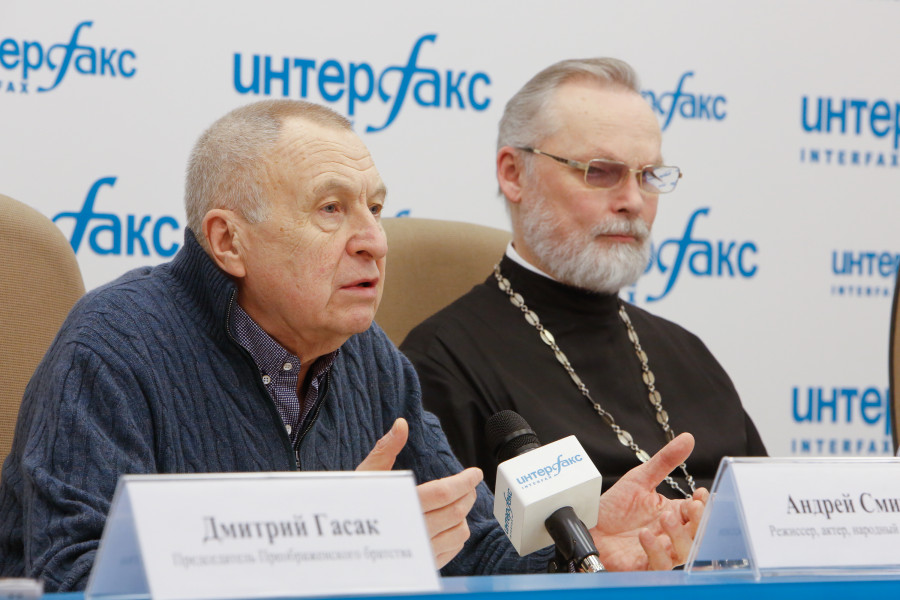
Andrey Smirnov, Fr Georgy Kochetkov
“The Revolution of 1917 was a national catastrophe,” said Oleg Scherbachov, the leader of the Russian (Moscow) branch of the Dvorjanskoje Sobranije (Council of Aristocrats). He takes a positive view of the Russian Patriarch Kirill’s recent statement that the Revolutionary events of 1917 were a “great crime.”
Oleg Scherbachev added, that he believes that the question of national repentance is a question for everyone, insofar as “we are all co-participants in the era of the Soviet regime.” He emphasized that “in the catastrophe of 1917 no one remains without guilt”… “some are guilty in what they did, some in what they didn’t do, some in what they said, others through their silence, and still others in forsaking their rational minds where thoughtfulness was required. All of us participated in the crime. Have we really done everything that we can to get rid of this cancer?” asks Oleg Scherbachov.
“We haven’t called our initiative “nationwide” repentance, although there are examples of such things in our nation’s history. The best example is probably the repentance of 1612-1613. People who came out of the Time of Troubles sensed that what they had just lived through was like a sin, and the people really did offer up their repentance,” said Scherbachov, who believes that “one of the most serious results of the Revolution” was the destruction of the Russian people as a people. “We all understand perfectly well, that the Russian people – such as existed before 1917 – simply doesn’t exist today,” he said in conclusion.

Oleg Scherbachov
“Calling our National to Repentance” could become a strong stimulus for the unification of the people, said Fr. Georgy Kochetkov, Rector of SFI, in his turn. He noted that “as a result of the Revolution, trust between people has been destroyed, but can be restored through repentance.”
“100 years ago serious divisions between people began to arise…but the divisions were not only external, but internal to every person, and all these divisions demand reconciliation. Repentance, in this regard, is the common, necessary human path to reconciliation, because every person is a spiritual being. Repentance is much more than just a church ritual,” said Fr. Georgy. He added that as a result of repentance, “trust can arise between people who were radically divided 100 years ago” and that “the mystery of repentance has never been individualistic and is always a communal phenomenon.”
In saying this, he emphasized that those people who were “lesser participants in the crimes of the Revolution and Soviet regime are perhaps even more capable of repentance, insofar as they have more fully preserved their humanity in its dignity.”

Fr Georgy Kochetkov
“These days plenty of people speak about reconciliation, but unity in respect of discernment between good and evil is the true, human, moral and spiritual foundation of reconciliation. And the motion of repentance, which is tradition for Orthodox culture and church worship is capable of bring us to this reconciliation,” said one of the organizers of the repentance initiative, Dmitry Gasak, the Chairman of the Transfiguration Brotherhood and Vice-Rector of SFI.
Dmitry Gasak emphasizes that “the call to repentance has a non-political character” and is addressed “to people of all ages, cultures and educational levels…to all who have an active conscience and live heart, who – finding themselves in a position of responsibility for what has happened – are ready and willing to offer their repentance before history, before their fellow man and before the Lord God for that which took place in our country.”
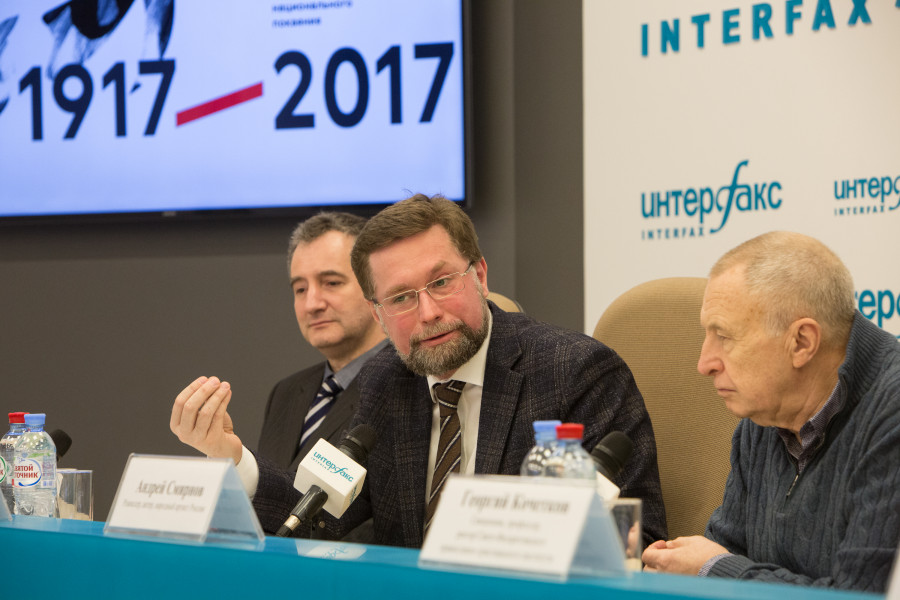
Oleg Scherbachov, Dmitry Gasak, Andrey Smirnov
In response to journalists’ questions about the Russian state’s relationship to the repentance initiative, Andrey Smirnov expressed hope that “the state will also wish to take part.”
According to Oleg Scherbachov, state authorities might take part by “changing the appellations of streets and metro stations which are currently named for executioners”, thereby carrying out at least a “minor decommunization” of the era, and by allowing memorials to be erected to various activist within the White Movement. He recalled the recent court decision to disallow the erection of a monument to Admiral Kolchak in St. Petersburg on the basis that Kolchak was a “war criminal”. “The state must also take steps toward reconciliation,” said Oleg Scherbachov.

Some time earlier at the Cathedral of Christ the Saviour in Moscow, Patriarch Kirill declared in a sermon, that “the Revolution was a great crime,” which lead to a great deal of innocent blood letting and grief, and that “God’s judgement for the bloody events of 1917 has already been felt in the history of our people.” The chief pastor of the ROC appealed to his flock with a question: “But how have we borne the punishment for these events? What have we truly taken upon ourselves?... That which is just in relation to our personal lives is also just in relation to the life of our people as a whole.”
In answering the questions as to why the organizers of the “Call to Repentance” associate the question of repentance with the past rather than the present, Fr. Georgy said that is impossible to stand against people’s relationship to evil in either the past of the present. “If people find it difficult to repent for bygone things that we can look on through the lens of history, than all the more will they find it difficult to speak about today, where we encounter a mixture of good and evil,” he said. In Fr. Georgy’s opinion, “those who can first soberly look at their own past, which we have not yet adequately evaluated, are best able to evaluate both the present and the future.”
Those who participated in the press conference also recently presented a Collection of Prayers for Russia, which were written by saints of the Russian Orthodox Church – outstanding personalities within the church and society, including Alexander Solzhenitsyn, and other contemporary Orthodox Christians.
This collection of historical and contemporary prayers “helps us to see that the tradition of collective repentance of a nation or people group has a strong historical precedent, which we should become familiar with and value,” said Fr. Georgy, presenting the book, which was published with the help of representatives of the first wave of Russian emigration to Paris.
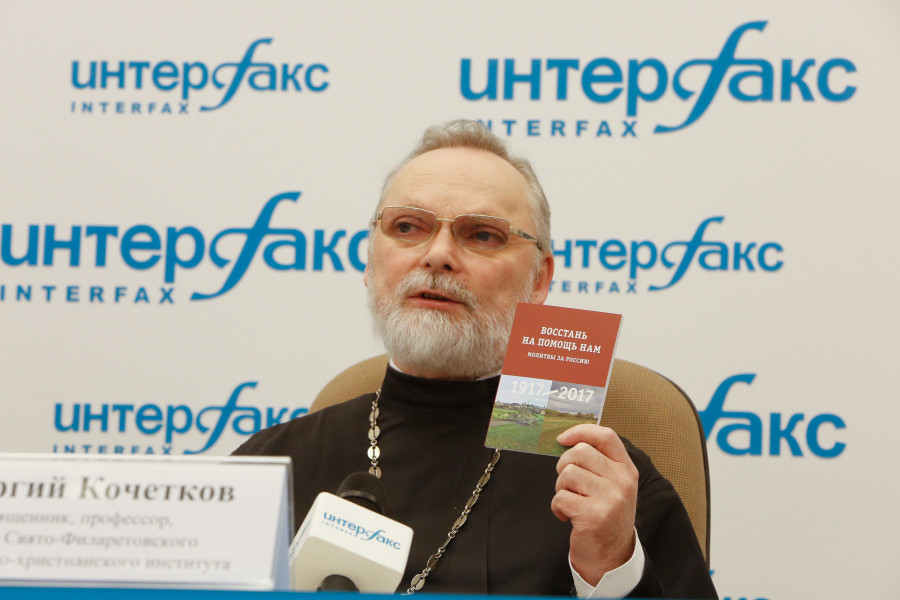
Fr Georgy Kochetkov
“Calling our Nation to Repentance: Those who have hope” is a non-political initiative of Orthodox Christians, supported by:
- Producer Andrey Smirnov,
- Historian and Telejournalist Nikolay Svanidze,
- Author, translator, former GULAG inmate Nikita Krivoshein, grandson of Alexander Vasilevich Krivoshein, who was Manager-in-charge of land use (1908-1915) and Chairman of the Government of the South of Russia,
- Dmitry Aleshkovskij, Chairman of the Charitable Fund “Nuzhna Pomoschj”,
- Poet Olga Sedakova, and others.
There have already been several events within the framework of the “Calling our Nation to Repentance” initiative, including:
- “Febrauray 1917” – a contemplative concert, which took place at the ZIL Cultural Centre in Moscow,
- “He who has a heart should hear, time…” – a contemplative concert at the Lendok Centre, in St. Petersburg,
- “A Prayer of Memory” – a reading of the names of many who suffered repression in Soviet times in dozens of cities across Russia.
“The 1917 Speakers Bureau” is also active in various cities across, dedicated to understanding what happened at the time of the Revolution.
Flashmobs dedicated to freeing the nation from Soviet symbolism – primarily statues of Lenin – are also being organized online (флэшмоб #НамНужноРасстаться).
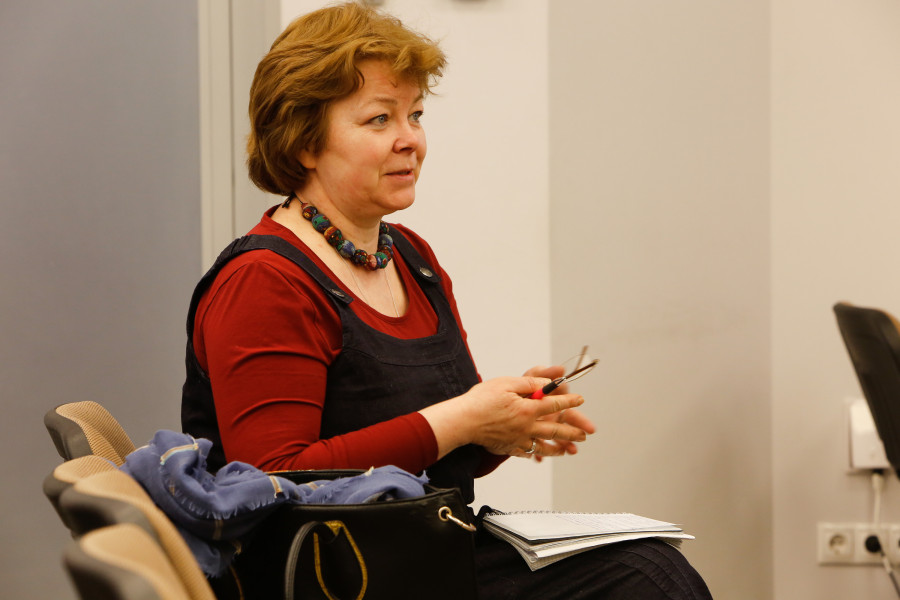
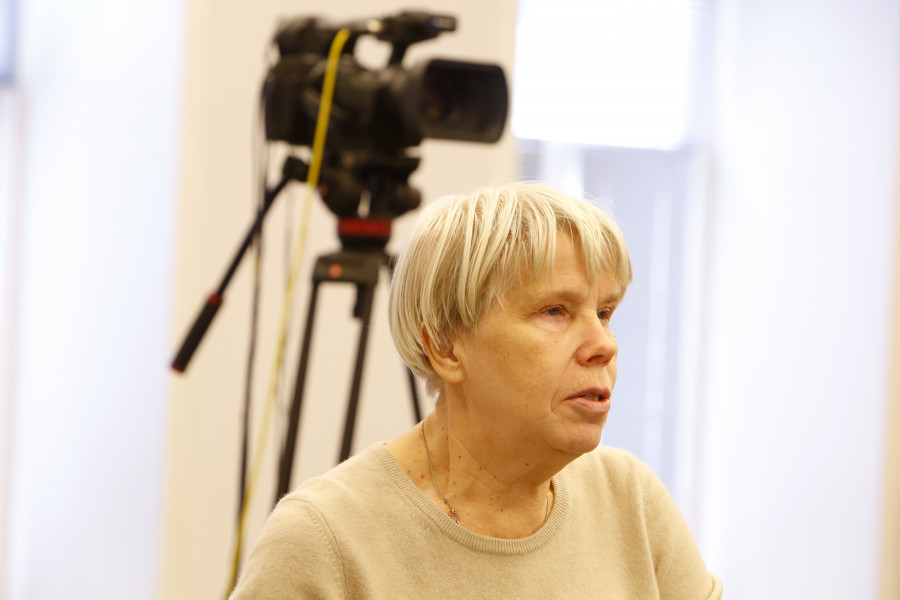
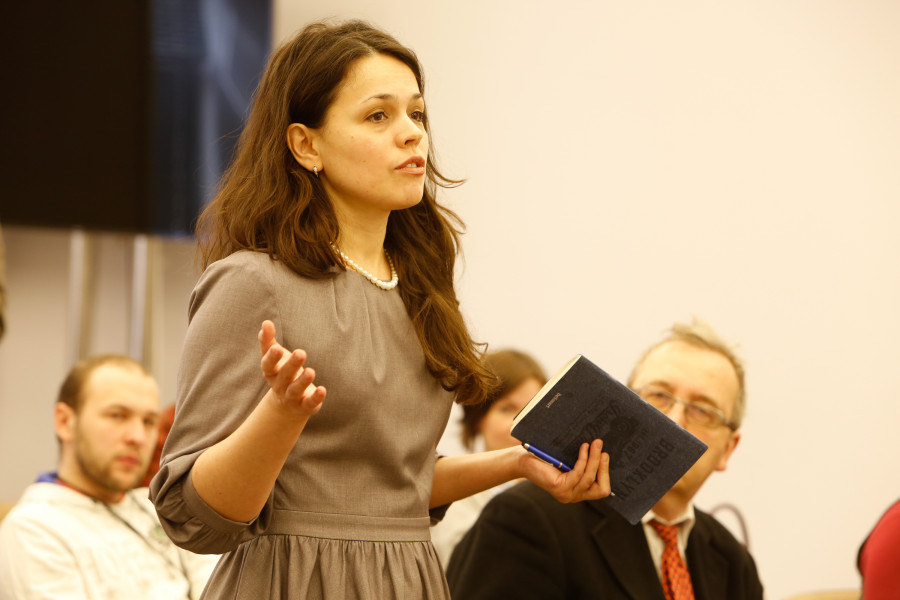
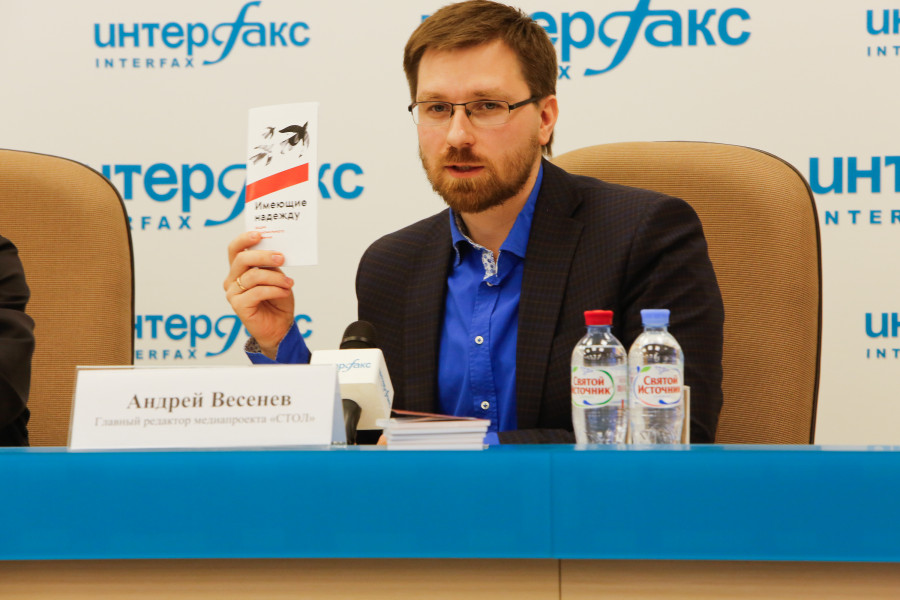
Andrey Vaseniov, Editor-in-Chief of the “Stol” Media Project
